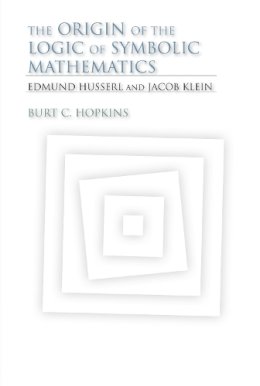
The Origin of the Logic of Symbolic Mathematics. Edmund Husserl and Jacob Klein.
Burt C. Hopkins
Burt C. Hopkins presents the first in-depth study of the work of Edmund Husserl and Jacob Klein on the philosophical foundations of the logic of modern symbolic mathematics. Accounts of the philosophical origins of formalized concepts—especially mathematical concepts and the process of mathematical abstraction that generates them—have been paramount to the development of phenomenology. Both Husserl and Klein independently concluded that it is impossible to separate the historical origin of the thought that generates the basic concepts of mathematics from their philosophical meanings. Hopkins explores how Husserl and Klein arrived at their conclusion and its philosophical implications for the modern ... Read more
Show LessProduct Details
About Burt C. Hopkins
Reviews for The Origin of the Logic of Symbolic Mathematics. Edmund Husserl and Jacob Klein.
